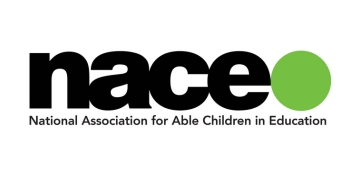What do you do when you have a teacher with a PhD in astrophysics? Find a new method of learning so that pupils in other schools can share his knowledge . . .
I’m not going anywhere near the problem of “evidence” or “proof” that technology has an impact in education. That would make for a very dull and yet divisive article because the short answer is: there is none. At least none that shows up in the closest proxy we have for learning-exam results.
Instead I’d rather tell you how a teacher in our group is using technology to change lives.
I was impressed the first time I met Rob Bastin. It’s not hard to see why: an astrophysics PhD who’d left the financial sector to become a teacher. Subject knowledge of that depth is a powerful thing. But to combine it with charisma, enthusiasm and passion for learning adds up to a highly effective teacher. However, he represented a real problem, too.
The problem wasn’t quality. Rob was having a significant impact on the lives of children in our schools, but only 30 at a time, and only the ones who happened to attend his school, Surbiton High School.
The problem: a great teacher, poorly distributed
He was a great teacher, but poorly distributed. Every physics student should have access to a Rob and if ever technology could have a tangible impact on learning, surely this was it?
We launched a pilot, UnitedClassroom.org, with the ambition to spread Rob more evenly without compromising the quality of outcomes and using the internet as the delivery mechanism. Year 10 students from Rob’s school and from our Lambeth Academy have been studying astronomy GCSE since September 2014.
Obviously this is not as good as having regular, face-to-face contact with a subject expert. No one is claiming that it is, and that wasn’t what we wanted to find out. The question was, rather, “Can this method of learning produce good results for students who would otherwise have no access to this course?”
The aim is to evolve a successful online classroom environment suitable for key stages 4 and 5, and to thereby provide access for children to courses and teachers they would otherwise never have.
The academy students’ chances of achieving a GCSE in astronomy at grade A*-C are now a possibility. In fact, Rob is confident that students’ coursework and progress shown in lessons indicates they will all achieve at least a C, with some on track for the highest grade.
We deliberately simplified the environment (Google Apps for education, hangouts and classroom are the key tools – all free) and hardware (Chromebooks + wifi are the base requirements) to remove points of failure and complexity.
We also ran the course in a co-curricular model, with live lessons at 4pm on a Tuesday, followed by collaborative tasks, online support sessions and flipped preparation materials. Everything was recorded and available, with all the teaching materials, at any time.
The “synchronous collaboration event” (or “lesson” if you prefer) was a very hands-on mix of listening, talking, working together and about as far away from a YouTubed lecture as it’s possible to get.
The challenge now is to scale the model. Our plans are to ramp up cautiously, where the most value can be added, based on what the group’s schools have identified as their greatest needs. From September this year, two A-level courses will be offered, with a further two to be added in 2016.
We are keen to understand if the model can be adapted to complement face-to-face teaching, a “top-up” approach if you like. But we are realistic about the challenges, not least organisationally and culturally, and will only continue to operate the project where it leads to qualifications of real value, for students who have no access to specialist teaching locally.
So, is technology worth bothering with? In this example, an unequivocal yes. And there are lots of other, less dramatic but equally impactful little revolutions of empowerment all round the country.
Dominic Norrish is Group Director of technology at United Learning. He is also the author of Educate 1-to-1, the secrets to successfully planning, implementing and sustaining change through mobile learning in schools







Great model.
Back in the 90’s I worked with a poet who lived many miles from the schools I supported to deliver support for creative writing. The sessions were universally loved by pupils, staff and the poet herself as they provided some really dynamic experiences, even with the cranky old video conferencing systems we had then.
Your piece made me think about what we could do with such a set up today, enabling a shared creative writing experience between students, poet and teacher.
The more critical question is
“What is the opportunity cost forour children of not bothering with technology?”
Rob has QTS